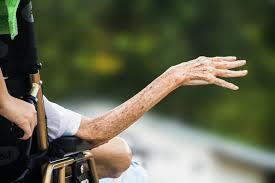
Top Tips to Protect Seniors from Burn Injuries
As we age, our skin becomes thinner and more susceptible to injuries, including burns. For seniors, a burn injury can lead to severe complications, prolonged recovery, and a decrease in quality of life. Therefore, taking preventive measures to protect seniors from burn injuries is essential. If a burn injury does occur, consulting a Phoenix burn injury lawyer can help navigate the legal aspects of such incidents. Here are some top tips to ensure the safety of older adults in various environments.
1. Maintain Safe Water Temperatures
Hot water burns are one of the most common causes of injuries among seniors. To reduce the risk:
- Set the Water Heater Temperature: Ensure the water heater is set to 120°F (49°C) or lower. This temperature is hot enough for daily use but reduces the risk of scalding.
- Install Anti-Scald Devices: Consider installing anti-scald devices on faucets and showerheads, which can automatically control the water temperature and prevent it from becoming too hot.
- Test the Water: Before a senior uses the bath or shower, always test the water temperature with your hand or a thermometer.
2. Use Safe Cooking Practices
Kitchens are a high-risk area for burns. To make cooking safer:
- Install Stove Guards: These devices can prevent accidental contact with hot burners and pots, reducing the risk of burns.
- Use Microwaves Carefully: Encourage seniors to use microwaves for cooking, which are safer than stoves. However, caution should still be taken to avoid burns from steam or hot containers.
- Keep Handles Turned Inward: When using the stove, ensure that pot and pan handles are turned inward to prevent them from being knocked over.
3. Improve Home Heating Safety
Burns can also result from home heating devices. To mitigate these risks:
- Keep Heaters Away from Flammable Materials: Ensure space heaters, radiators, and other heating devices are placed away from curtains, bedding, and furniture.
- Install a Fireplace Screen: If the home has a fireplace, use a sturdy screen to contain sparks and prevent accidental contact with the flames.
- Opt for Electric Blankets with Safety Features: If seniors use electric blankets, choose ones with automatic shut-off features and check regularly for wear and tear.
4. Educate on Hot Beverage Safety
Hot liquids can cause severe burns, especially when spilled:
- Use Insulated Cups: Provide seniors with insulated cups that have lids, reducing the risk of spills and maintaining a safe temperature for longer.
- Avoid Overfilling: Ensure cups and mugs are not overfilled, which can easily lead to spills.
- Stable Surfaces: Encourage placing hot beverages on stable, flat surfaces to avoid accidental tipping.
5. Enhance Bathroom Safety
The bathroom is another area where seniors are vulnerable to burns:
- Install Grab Bars: Place grab bars near the walk-in bath, shower, and toilet to help seniors maintain balance and avoid falling against hot surfaces.
- Use Non-Slip Mats: Non-slip mats in the tub and on the bathroom floor can prevent falls, which might lead to accidental burns.
- Consider a Shower Chair: A shower chair can help seniors sit while bathing, reducing the risk of contact with hot water.
6. Clothing Considerations
Certain clothing can increase the risk of burns:
- Wear Proper Clothing: Encourage seniors to wear close-fitting clothing when cooking to prevent sleeves from catching fire.
- Avoid Loose Fabrics: Loose, flowing garments are more likely to come into contact with hot surfaces or open flames.
7. Install Smoke Detectors and Alarms
Early detection of a fire can prevent severe burn injuries:
- Smoke Alarms: Ensure smoke alarms are installed on every level of the home, especially in the kitchen and bedrooms.
- Test Regularly: Test alarms monthly and replace batteries at least once a year. Consider interconnected alarms that sound throughout the home if one is triggered.
- Consider Bedside Alarms: For seniors with hearing impairments, use vibrating or flashing light alarms.
8. Educate on First Aid for Burns
Knowing how to respond quickly to a burn can reduce its severity:
- Cool the Burn: Run cool (not cold) water over the burn for at least 10 minutes. Avoid using ice or very cold water, as it can further damage the skin.
- Avoid Home Remedies: Do not apply butter, oils, or creams to the burn as these can trap heat and worsen the injury.
- Seek Medical Attention: For serious burns, or if there is any doubt about the severity, seek medical attention immediately.
Burn injuries can have serious consequences, particularly for seniors. By implementing these preventive measures and creating a safer living environment, we can significantly reduce the risk of burns and ensure that our older loved ones remain safe and secure in their homes. Regularly reviewing and updating safety practices is key to protecting seniors from burn injuries